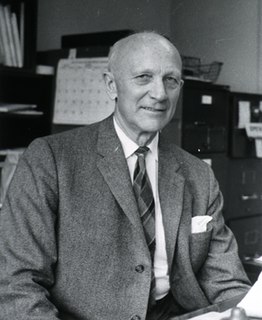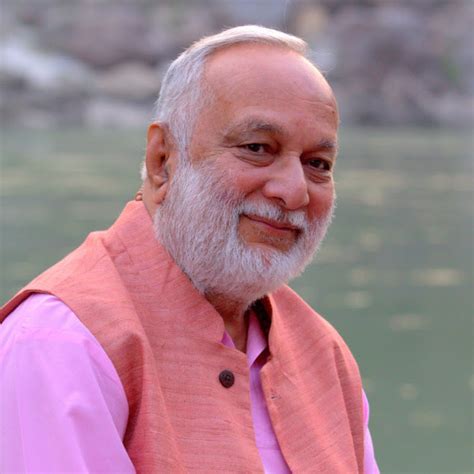A Quote by John Tillotson
How often might a man, after he had jumbled a set of letters in a bag, fling them out upon the ground before they would fall into an exact poem, yea, or so much as make a good discourse in prose? And may not a little book be as easily made by chance as this great volume of the world?
Related Quotes
I'm often a little perplexed, when I read a review of a book, by the quotes that are pulled out as evidence of excellent prose. I don't think great novels are necessarily composed of great prose, or that there's a correlation between beautiful prose and the quality of a work of fiction. A really good, interesting novel will often let a little ugliness get into its words - to create a certain effect, to leave the reader with a certain sense of disorientation.
My favourite book as a child was an old 'Newne's Children's Encyclopaedia' which my grandfather had bought just before World War II and donated to our family after seeing how interested we were in it. Each volume had special chapters called 'Things Boys can Do.' My brothers and I would pick out interesting projects.
A girl who would fall in love so easily or want a man to love her so easily would probably get over it just as quickly, very little the worse for wear. On the contrary, a girl who would take love seriously would probably be a good while finding herself in love and would require something beyond mere friendly attentions from a man before she would think of him in that light.
In spite of all these disquieting triumphs in the field of natural science, it's astonishing how little man has learned about himself, and how much there is to learn. How little we know about this brain which made social evolution possible, and of the mind. How little we know of the nature and spirit of man and God. We stand now before this inner frontier of ignorance. If we could pass it, we might well discover the meaning of life and understand man's destiny.
That the happiness of man may still remain imperfect, as wants in this place are easily supplied, new wants likewise are easily created; every man, in surveying the shops of London, sees numberless instruments and conveniencies, of which, while he did not know them, he never felt the need; and yet, when use has made them familiar, wonders how life could be supported without them. Thus it comes to pass, that our desires always increase with our possessions; the knowledge that something remains yet unenjoyed, impairs our enjoyment of the good before us.
No man, however benevolent, liberal, and wise, can use a large fortune so that it will do half as much good in the world as it would if it were divided into moderate sums and in the hands of workmen who had earned it by industry and frugality. The piling up of estates often does great and conspicuous good.... But no man does with accumulated wealth so much good as the same amount would do in many hands.
I need geometry to set the grammar of the image expressive language . The structural skeleton, the composition and the geometric layout provide a perspective from which one can read the image; otherwise we would do what Dadaists did when they put words in a little bag and then took them out at random in order to compose a poem.
Before The World Was Made If I make the lashes dark and the eyes more bright and the lips more scarlet, or ask if all be right from mirror after mirror, no vanity's displayed: I'm looking for the face I had before the world was made. What if I look upon a man as though on my beloved, and my blood be cold the while and my heart unmoved? Why should he think me cruel or that he is betrayed? I'd have him love the thing that was before the world was made.
And then, one Thursday, nearly two thousand years after one man had been nailed to a tree for saying how great it would be to be nice to people for a change, a girl sitting on her own in a small café in Rickmansworth suddenly realized what it was that had been going wrong all this time, and she finally knew how the world could be made a good and happy place. This time it was right, it would work, and no one would have to get nailed to anything.
The statement of ideas in a poem may have to do with logic. More profoundly, it may be identified with the emotional progression of the poem, in terms of the music and images, so that the poem is alive throughout. Another, more fundamental statement in poetry, is made through the images themselves those declarations, evocative, exact, and musical, which move through time and are the actions of a poem.
Osho used me and Shunyo (my girlfriend at the time) as an example of how he envisioned men and women should relate. He shared a story he had often told in discourse of a man and woman who lived at opposite ends of a lake. They were deeply in love but only met by chance when sometimes out rowing on the water. He said it was beautiful how Shunyo and I met like this couple. When we had the feeling to be together, we would meet and enjoy. And when we were apart, we were also happy and content in our aloneness.
I never think of my audience when I write a poem. I try to write out of whatever is haunting me; in order for a poem to feel authentic, I have to feel I'm treading on very dangerous ground, which can mean that the resulting revelations may prove hurtful to other people. The time for thinking about that kind of guilt or any collective sense of responsibility, however, occurs much later in the creative process, after the poem is finished.
I'd write of people and places like I knew, and I'd make my characters talk everyday English; and I'd let the sun rise and set in the usual quiet way without much fuss over the fact. If I had to have villains at all, I'd give them a chance, Anne--I'd give them a chance. There are some terrible bad men the world, I suppose, but you'd have to go a long piece to find them...But most of us have got a little decency somewhere in us. Keep on writing, Anne.
And isn't the whole world yours? For how often you set it on fire with your love and saw it blaze and burn up and secretly replaced it with another world while everyone slept. You felt in such complete harmony with God, when every morning you asked him for a new earth, so that all the ones he had made could have their turn. You thought it would be shabby to save them and repair them; you used them up and held out your hands, again and again, for more world. For your love was equal to everything.
It is a pity to make a mystery out of what should most easily be understood. There is nothing occult about the thought that all things maybe made well or made ill. A work of art is a well-made thing - that is all. It may be a well-made statue of a well-made chair or a well-made book. Art is not a special sauce applied to ordinary cooking; it is the cooking itself that is good. Most simply and generally, Art may be thought of as "The Well Doing of What Needs Doing."





































